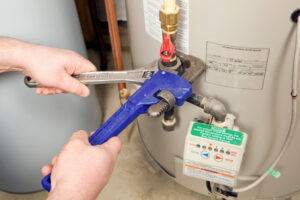
A dead water heater means you’re trapped without hot water and you won’t have it restored until you can arrange for a replacement. You can count on fast plumbing service in Hartville, OH from our team when you need a new water heater, but we can’t work magic and instantly give you a new one. The best way to avoid this scenario is to plan ahead and watch for indications your water heater is approaching the end of its service life. You can then set the replacement on your schedule, not the water heater’s.
We’ll list the major signs that will inform you it’s time to call us for water heater replacement.
1. The age of the water heater
Although the raw age of a water heater isn’t an absolute determining factor for replacement, it provides a useful range for when to begin planning your water heater’s retirement. Modern storage tank water heaters last for around 10 to 12 years, and tankless water heaters from 15 to 20. If the system hasn’t received annual maintenance, the life expectancy will drop a few years. When your water heater is at or above its life expectancy, pay close attention to any other warning signs—and you may also simply arrange for a new system even if the current one isn’t outwardly performing worse.
2. Red discoloration in the hot water
Discoloration in the hot water in your house can come from several sources, such as excess sediment in the tank. If your water heater is already up there in age, a reddish discoloration from the hot water taps often means the interior of the tank has rusted through—and a water heater can’t recover from something that serious!
3. Excessive leaking
Any leak from a water heater, whether from the tank itself or from connection points to pipes, is a repair issue you need to address right away. When multiple leaks start to appear or you’re finding leaks have turned into routine problems, the water heater is too old and rapidly deteriorating to keep.
4. Visible corrosion
Corrosion is Public Enemy #1 for a water heater. If it appears on replaceable components like the heat exchanger, repairs can sometimes work. When the corrosion appears on the tank, however, the unit is almost certainly a goner. There aren’t any cost-effective repairs to fix a corroding tank.
5. Decline in hot water volume
When your water heater was initially installed, plumbers precisely sized it so it could deliver the regular amount of hot water your household needs on a daily basis. If you start to notice the water heater cannot keep up with standard demands and people in your home are going with lukewarm or cold showers in the morning, call plumbers right away to see if it’s time to replace the water heater.
6. High energy bills
The water heater accounts for the largest amount of heating power used in your home, so when it begins to falter at the end of its service life it will trigger a noticeable increase in utility bills. When you have an old water heater and high gas/electric bills, it’s probably time to move on to a new water heater.


